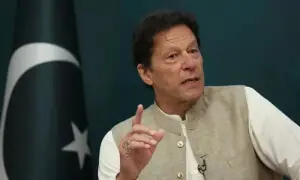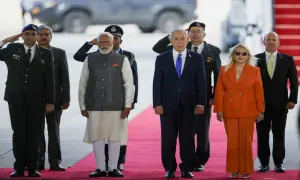Elite education leads to brain drain in Pakistan
4 min readBetween the poorly thought-out educational policies of Zulfikar Bhutto’s nationalization and Zia-ul-Haq’s denationalization, public education was destroyed irreversibly in Pakistan. However, whatever the damage wrought by the nationalization of education in 1972, the real blow to the cause of social mobility for the masses was dealt by Zia’s decision in 1979 to delay and shift the introduction of the subject of English to grade 5 instead of Grade 1. Zia’s policy of denationalization led to the proliferation of private Expensive Elitist Exclusionary English Education (EEEEE).
There is nothing necessarily wrong with private education and there is nothing wrong with education that imparts a solid foundation in English by using the global lingua franca as the medium of instruction. However, something is wrong with a system that only provides decent instruction and critical thinking skills thru an EEEEE track to the exclusion of all others i.e., public education, madrassas, and non-elite private schools. And everything is definitely wrong with a system that does not impart basic literacy in the vernacular to all members of society.
This flight of intellectual capital produced by elite education sets the stage for the flight of any intellectual capital that the public system produces
Today Pakistan’s educational landscape is a barren wasteland where, as is well known, over 25 million children of school going age are not in schools. Meanwhile the children of the elite, who likely represent about one percent (1%) of the country’s entire student body, receive excellent private education. The problem is this: Many, if not most, students graduating from the EEEEE track have only one dream, which is to get out of Pakistan, aka brain-drain. Hence the precious resources that the country invests in creating these bright scholars goes down the tube.
This flight of intellectual capital produced by elite education sets the stage for the flight of any intellectual capital that the public system produces, as meagre as it may be. And why fault a student from an underprivileged background, who overcame insurmountable odds to succeed, from wanting to tread the same path as his better off contemporaries. For them, the desire to leave Pakistan is also underpinned by the harsh indignities that the poor face on a daily basis in our highly stratified and class-conscious society.
When the subject of the flight of intellectual capital and the reasons for it is brought up, the counterargument often is to point at the billions that overseas Pakistanis remit back home. Lost in this noise is the fact that no matter how many dollars our overseas compatriots send, these never seem to be enough. More to the point, the much more valuable contributions that educated citizens could make directly towards the development of a more robust economy and a more civilized society are lost. It is the educated and literate who contribute to creating the surplus that becomes the backbone of economies like China. As Tim Cook says, Apple produces its computers in China not because it is the cheapest place but because the People’s Republic has a skilled workforce.
A fill-up of a Prado or Land-Cruiser may be about the same as the driver’s salary
There are many genuine social sector organizations who are providing great services in the health and education sectors alleviating the suffering of the disadvantaged. However, the work they are doing achieves barely more than putting band-aids on terminal cancer. Even after receiving decent medical care or good vocational training, an illiterate or semiliterate person has to return to the same morass of misery and injustice with little chance of upping their social status, exceptions notwithstanding. The possibility of social mobility is bleak in Pakistan and is evidenced by the continuous fall of our Human Development Index: 149 in 2018; 154 in 2020; 161 in 2022.
Without taking anything away from the good work that some social sector organizations are doing, their endeavors provide an excuse to the state not to take matters more seriously or as seriously as it should when it comes to education and health. They also offer an avenue to the elite to throw charity at the destitute but without changing the structures of class, privilege, and exclusion. An example of this would be the non-provision of fair wages or a living wage to workers and servants despite possession of wealth. A fill-up of a Prado or Land-Cruiser may be about the same as the driver’s salary.
Only countries that invested in a strong and fair public education system have achieved a decent level of development, and anyone who feels that EEEEE will eventually, miraculously, deliver us to the promised land is living in delusion. One suspects this is the hope of our highly elitist establishment but data and research would fly in the face of such thinking. It is the basic literacy that good public education produces that forms the foundation of a robust society by creating possibilities for social mobility. It certainly formed the foundations of the Asian Tigers, and others like Iran, and perhaps even Bangladesh can now be included in this list. A literate person can better think, analyze, improvise, create. An illiterate person is compromised. Why do our rulers not understand this basic truth?
The writer holds a PhD in Education and can be reached at [email protected]
For the latest news, follow us on Twitter @Aaj_Urdu. We are also on Facebook, Instagram and YouTube.
























Comments are closed on this story.